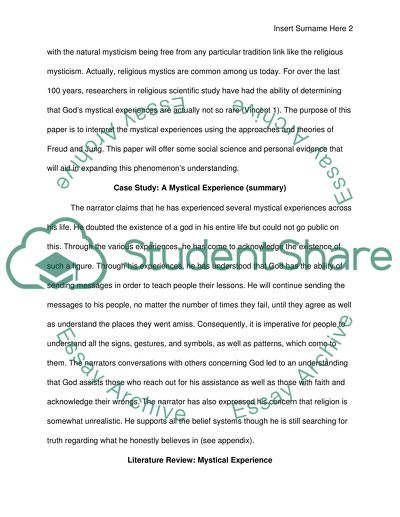Cite this document
(“World Religions - Psychology of Mystical Experience Term Paper”, n.d.)
Retrieved from https://studentshare.org/religion-and-theology/1594721-world-religions-psychology-of-mystical-experience
Retrieved from https://studentshare.org/religion-and-theology/1594721-world-religions-psychology-of-mystical-experience
(World Religions - Psychology of Mystical Experience Term Paper)
https://studentshare.org/religion-and-theology/1594721-world-religions-psychology-of-mystical-experience.
https://studentshare.org/religion-and-theology/1594721-world-religions-psychology-of-mystical-experience.
“World Religions - Psychology of Mystical Experience Term Paper”, n.d. https://studentshare.org/religion-and-theology/1594721-world-religions-psychology-of-mystical-experience.


